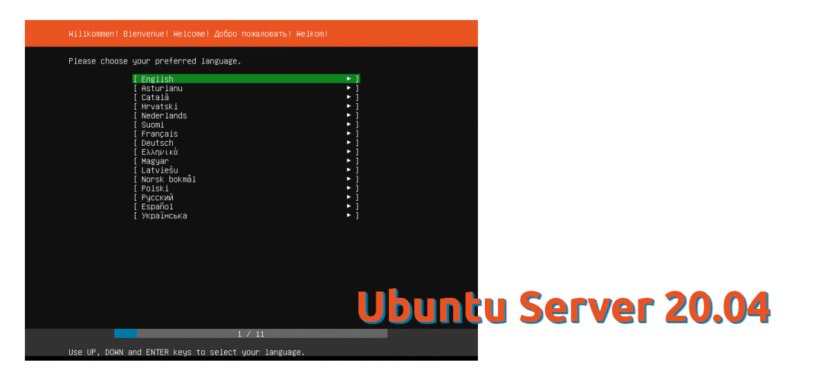
Although it has other uses as well, many users install Ubuntu Server to use a version of Ubuntu with absolutely no bloatware. So much so that, to be able to use it as a desktop operating system, the first thing they advise is to install a graphical environment. It is also a good option to use on simple boards like the Raspberry Pi. But the downside is its installer, a bit confusing for today. This is something they are planning to change to Ubuntu Server 20.04.
This is how they have been debating it for almost a week in the Canonical forums. One of the points they want to improve is that the installation of Ubuntu Server 20.04 is faster than in previous versions. On the other hand, they also want it to be more comfortable, for which remove the Debian-based installer to replace it with their own and more modern.
Ubuntu Server 20.04 installer will no longer be based on Debian
With 20.04 LTS, we will complete the transition to the live server installer and discontinue the classic debian-installer (di) -based server installer, allowing us to focus our engineering efforts on a single code base. Next-generation subiquity live server provides convenient live session and quick installation of Ubuntu Desktop for server users.
The new version of the installer includes improvements such as:
- Self-installation option.
- SSH will be enabled in the installer session.
- New Guided Rugged Installation Option.
- Support for vtoc (Volume Table of Contents) partition tables used by Direct Access Storage Devices (DASD) on the s390x (IBM System z) architecture.
- Support for RAIR and LVM, including support for arm64, ppc64el, and s390x architectures.
- Possibility of self-updating.
- Support for Netboot.
- Integrated bug reporting.
- Support for configuring VLAN and network links, as well as switching to a shell for debugging purposes.
Canonical is inviting us to try the new installer, for which we must download a Daily Build Ubuntu Server 20.04, available from this link. Without a doubt and as we have mentioned, this news is interesting for users of simple plates such as Raspberry Pi, and more after learning that Canonical will improve support for Raspberry plates in future releases.